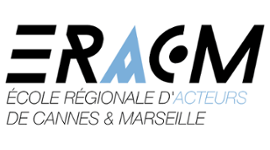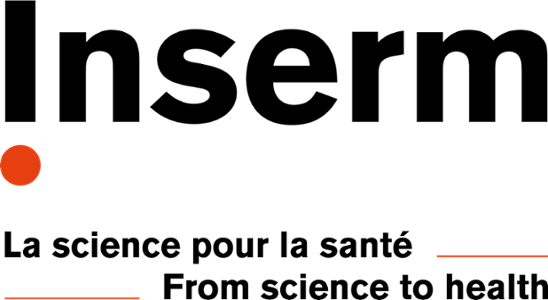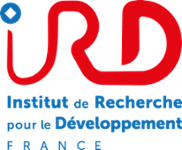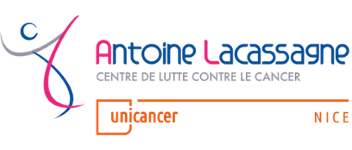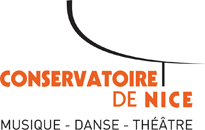Master PSYCHOLOGIE
Call to actions
Résumé
This master's degree offers training in psychology with a diverse selection of seven tracks covering clinical, cognitive, development, work and social psychology. Read moreObjectifs
Initial training
/
Executive Education Program
/
Accessible for resumption of studies
/
Master
2 years
EUR Arts et Humanités / EUR Sciences de la Société et de l’Environnement / EUR Écosystèmes des Sciences de la Santé / EUR Écosystèmes des Sciences de la Santé
Nice
French
Details
Accéder aux sections de la fiche
Introduction
This program brings together integrated master's tracks grouping M1 and M2 and taking place over 4 semesters. The administrative registration must still be done at the beginning of each year.
The program includes 8 tracks which cover, in a diversified manner, the different paradigms and the methodologies of psychology. Thus, integrated master’s students prepare for both clinical practice and research. The first year is composed of courses specific to the chosen track and, alternatively, mandatory transversal courses that are common to the various tracks. The different tracks offered are (see section "Program and content" for a more detailed description of the program and the 7 tracks):
Integrative clinical psychology and aging
Clinical psychology and therapeutic mediation through art
Psychology of development, learning and education
Neuropsychology and cognitive psychopathology
Psychoanalytic psychopathology and transcultural clinics: social changes, crises and trauma
Cognitive ergonomics of digital technologies
Psychosocial engineering, occupational psychology and human resources
The general organization of the master’s program and a more detailed description of the courses is also available on the "2018-2024 master's study booklet", accessible online on the website of the psychology department at the following address (column to the right of the page): http://unice.fr/faculte-des-letter-arts-sciences-humaines/presentation/departements/sciences-humaines-et-sociales/psychologie
Objectives
The Master’s in Psychology gives the student in-depth knowledge of general psychology. Through the seven standard tracks, it also allows students to master a specialization.
At the end of the program, the students have the specific skills required to analyze complex psycho-social situations and to instigate appropriate intervention strategies for each field covered by the course. Also, graduates have the appropriate skills to become specialized psychologists (or ergonomists) involved in different fields of the profession (health, education, work, HR). Another vocation that students are able to pursue is the field of public and private research.
Specificities
The program is composed of general classes over 4 semesters (2 years) and a progressive specialization of 7 specific courses. The structure comprises 50% of common core courses in the first year and includes 6 transversal units: Psychometrics and Psychological Examination, Maintenance and Observation, Epistemology, Statistics, Ethics and Practices and Foreign Living Language. This broad core curriculum teaches the basics (theories, models, methods) common to the various tracks of the master’s program.
The tracks correspond to very different professions (social psychologist, clinical psychologist, developmental psychologist, school psychologist - subject to the admission competition -, neuropsychologist, ergonomist, etc.) and apply to various populations (children, adolescents and adults young and old) in very disparate contexts (disabled, in hospital services, in a school context, in a company, etc.)
Each track offers specific classes, in addition to the common core:
1. Integrative clinical psychology and aging
Training in the field of aging and gerontology expertise in clinical psychology, psychotherapy, positive psychology (integrative approach to well-being and personal fulfillment).
2. Clinical psychology and therapeutic mediation through art
A unique training program in France, focused on an innovative theme and currently expanding both in terms of practice and research. This program is based on clinical psychology and psychotherapy with a strong emphasis on learning therapeutic mediation through art.
3. Psychology of development, learning and education
Training in developmental psychology, learning and education, with specialization in language and its disorders.
4. Neuropsychology and cognitive psychopathology
Training in the expertise, practices and interventions of neuropsychologists based on 3 pillars: 1) clinical and cognitive neuropsychology centered on knowledge of brain pathologies, 2) diagnostic interventions and practices, neuropsychological assessment and load taking and 3) the plasticity of cognitive processes and the ability to mobilize them in an adaptive sense.
5. Psychoanalytic Psychopathology and Transcultural Clinics: Social Changes, Crisis and Trauma
This track seeks to train clinician researchers specialized in clinics for the social changes, inter- and trans-culturality, crises and traumas, within a dual training program: 1) clinical, psychopathological psycho-analytic and 2) specific to the intercultural approach of clinical and psychopathological phenomena (precariousness, exclusion, facts and events of the contemporary world, identity tensions, radicalities, trauma, etc.)
6. Cognitive ergonomics of digital technologies
The study of human-machine interactions and the analysis of digital technologies and their uses. The recommendations made from the analyses will guide the design and evolution of digital devices, so as to jointly ensure the well-being and satisfaction of system users and organizations.
7. Psychosocial engineering, occupational psychology and human resources
Training in psychosociology developing the skills of students in the practice of the occupational psychologist and the engineering of behavioral changes. This training program focuses on the conditions of preservation of well-being and mental health and more specifically on the theme of the quality of life at work.
A more detailed presentation of the courses is available on the "2018-2024 master studies booklet", accessible online on the website of the psychology department at the following address (column on the right side of the page): http://unice.fr/faculte-des-lettres-arts-sciences-humaines/departements/sciences-de-lhomme-et-de-la-societe/masters/psychologie
Places
Nice
Person in charge of the academic program
Galinka IAKIMOVA
Galina.Iakimova@unice.fr
Admission
Prerequisite
Prerequisites for enrolment
Undergraduate level
Course program
- PARCOURS - Ergonomie cognitive des technologies numériqueS (EUR HEALTHY)
- PARCOURS - Ingénierie psychosociale, psychologie du travail et ressources humaines
- PARCOURS - Psychologie clinique et médiation thérapeutiques par l’art (EUR HEALTHY)
- PARCOURS - Psychologie Clinique Intégrative et Vieillissement (EUR HEALTHY)
- PARCOURS - Psychologie clinique, vulnérabilités et développement du psychotraumatisme (EUR HEALTHY)
- PARCOURS - Psychologie du développement, des apprentissages et de l'éducation (EUR HEALTHY)
- PARCOURS - Psychopathologie psychanalytique et cliniques transculturelles: mutations du lien social, crises et traumatismes
- PARCOURS Neuropsychologie et psychopathologie cognitive (EUR HEALTHY)
What's next ?
Level of education obtained after completion
Year of highschool graduation
Graduate levelLevel of education obtained after completion
Graduate levelJob opening
Publié le March 30, 2020
–
Mise à jour le January 9, 2024

